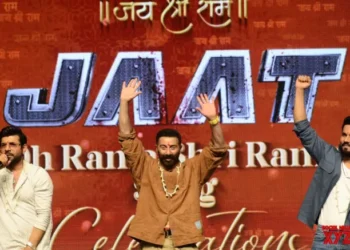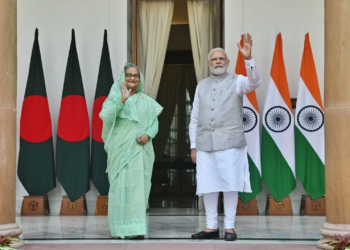A senior UN official called for de-escalation of tensions following Israeli National Security Minister Itamar Ben-Gvir’s visit to the Al-Aqsa Mosque compound in East Jerusalem.
“As we have seen numerous times in the past, the situation at Jerusalem’s holy sites is deeply fragile, and any incident or tension there can spill over and cause violence throughout the occupied Palestinian territory, in Israel, and elsewhere in the region,” warned Khaled Khiari, UN assistant secretary-general for the Middle East, Asia and the Pacific.
“With that reality in mind, I reiterate the secretary-general’s call for all parties to refrain from steps that could escalate tensions in and around the holy sites, and for all to uphold the status quo, in line with the special role of the Hashemite Kingdom of Jordan,” he told the Security Council in a briefing on Thursday, Xinhua news agency reported.
The Al-Aqsa Mosque compound, known to the Jewish people as the Temple Mount, is sacred to both Muslims and Jews.
The Jerusalem holy site has been administered by the Jerusalem Islamic Waqf, a Jordanian body, since 1948. After Israel took over Jerusalem in 1967, it was obliged to respect the status quo and not to make any changes to the laws and institutions in occupied East Jerusalem. According to a 1967 agreement between Israel and Jordan, non-Muslim worshippers can visit the Al-Aqsa Mosque compound but are prohibited from praying there.
Ben-Gvir’s visit on Tuesday was the first to the site by an Israeli minister since 2017. While the visit was not accompanied or followed by violence, it is seen as particularly inflammatory given Ben-Gvir’s past advocacy for changes to the status quo, said Khiari.
Ben-Gvir, known as an ultra-nationalist, was sworn in as Israel’s national security minister last week, as Prime Minister Benjamin Netanyahu’s new extreme-right coalition government took office.
The visit was sharply condemned by the Palestinian Authority, many others across the region and the international community as a provocation that risked sparking further bloodshed. Many also warned against any changes to the status quo at the holy sites, said Khiari.
Following Ben-Gvir’s visit, the Israeli Prime Minister’s Office and other senior Israeli officials emphasized that the Israeli government is committed to upholding the status quo and said that the visit did not represent a deviation from it, he noted.
Over the past several days, the United Nations has remained in close contact with relevant parties to de-escalate the situation, and these engagements will continue in the coming days and weeks, he said.
“At this sensitive moment, all efforts to lower tensions should be encouraged, while provocations, inflammatory steps, unilateral actions and threats of violence must be categorically rejected. Leaders on all sides have a responsibility to lower the flames and create the conditions for calm,” said Khiari. “The UN remains ready to assist and support these efforts.”



















